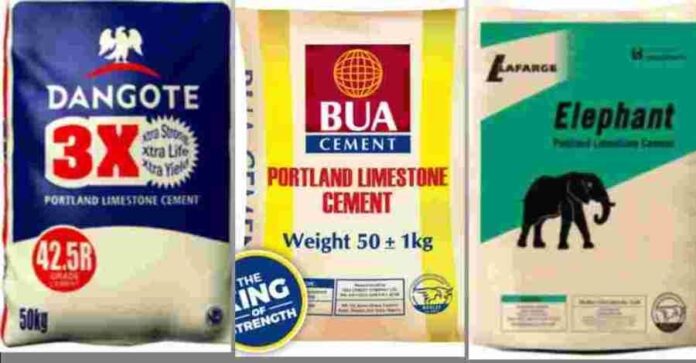By Ohuakanwa Chibuzo
In 2023, Nigeria’s cement industry witnessed a notable upswing in profitability, with the three major manufacturers—Dangote Cement, BUA Cement, and Lafarge Africa—reporting combined profits of N710.03 billion. This surge in profitability was attributed to increased sales and higher prices, which alleviated operational pressures within the sector.
Despite facing challenges such as foreign exchange losses, the cement manufacturers demonstrated substantial growth in both sales and profitability. Total sales across the industry rose from N2.35 trillion in 2022 to N3.076 trillion in 2023. Operating profit followed suit, increasing from N799.79 billion to N910.99 billion during the same period. However, pre-tax profit experienced a slight dip from N713.89 billion to N710.03 billion in 2023, primarily due to BUA Cement’s performance.
Nigeria’s cement market is predominantly controlled by these three manufacturers, with Dangote Cement holding the lion’s share. Alhaji Aliko Dangote, Alhaji Abdul Samad Rabiu, and the French multinational Holcim Limited collectively hold significant stakes in these companies. The exclusive control of the cement market has come under scrutiny as cement prices skyrocketed, prompting government intervention to cap prices at an average of N7,000 per 50kg bag.
Dangote Cement maintained its market dominance, witnessing an increase in turnover, operating profit, and net profit. The company’s board recommended an increase in dividend payouts, reflecting its strong financial performance. Lafarge Africa experienced a rise in sales but witnessed a slip in net profit, leading to a reduction in dividend per share to align with its performance. BUA Cement, which emerged as the second-largest by turnover, faced challenges in maintaining profitability despite significant sales growth. Forex losses and difficulties in reducing prices contributed to the company’s performance struggles.
ALSO READ: Jide Kosoko joins K1 De Ultimate, postpones 70th birthday celebration because of economic hardship
Market analysts anticipate sustained high demand for cement, which may keep prices elevated in the absence of significant market shifts. Concerns over the oligopolistic market structure prompted the government to consider allowing cement importation to mitigate rising prices, especially considering the significant price disparities between Nigeria and neighboring countries.
Stakeholders, including the Nigerian Institute of Quantity Surveyors (NIQS), have voiced support for government intervention to address the surge in cement prices. NIQS President Kene Nzekwe emphasized the adverse effects of rising prices on construction projects and economic growth, urging the government to follow through on threats to open borders for cement importation if local manufacturers fail to reduce prices.
As Nigeria grapples with the challenges in its cement industry, there is a collective call for sustainable solutions to stabilize the market and support economic growth. The outcome of government interventions and industry responses will significantly impact the trajectory of the cement sector and its contribution to the Nigerian economy in the coming years.













